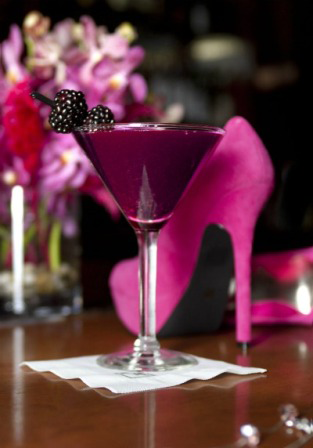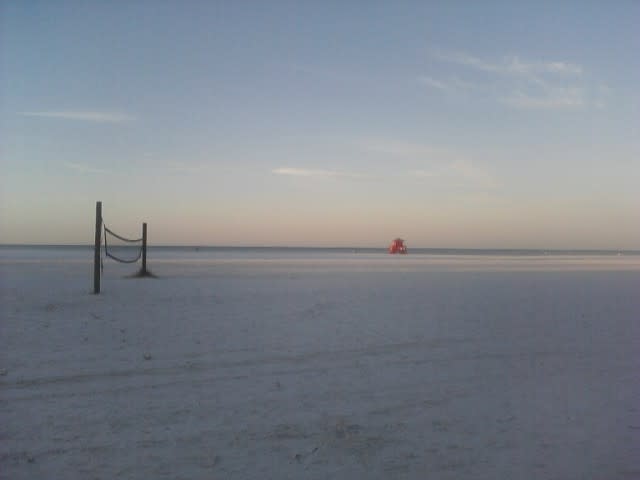Tel Aviv II
I was surprised that Ron would give me such unfettered access to his apartment. He lived in a three bedroom on the third floor of a mostly dilapidated building in Jaffa. Jaffa is the historically Arabic port neighborhood in the southern end of Tel Aviv. Many Arabs live there today (about 16,000) amongst the growing Jewish population (about 30,000). There was a mosque a couple blocks from Ron's apartment and five times the adhan, the call to prayer, would project from the loudspeaker atop the minaret. I could hear it as early as 4 in the morning and it was beautiful and primordial and erie and guttural and perfectly matched the desert heat.
Allah. [Click here to listen to Isaac's recording of the call to prayer.]

Just around the corner from Ron's there was a falafel shop where I ate breakfast, lunch and dinner. The same grey-haired, stern man served me three square meals a day, though he'd always ask precisely what I wanted. My budget for Israel was $50 a day, and these falafels, filled with pickled cabbage and onions, were eight shekels a piece ($1 is roughly 3.4 shekels), so falafel became a vital—and inevitably loathsome—part of my Israeli experience. It was important to budget meals because alcohol in Israel is exorbitant. Cheap, local beer in a regular Tel Aviv bar costs around 25 shekels, so getting drunk—my occasional goal—for less than $40 is difficult. I mostly avoided shawarma. I never found the sight of chicken stacked like flapjacks on a vertical rotisserie like some sweaty, spinning, meat obelisk to be very enticing. Plus, everywhere I went in Israel they were more than twice as much as a falafel.

Once I'd choked down my second falafel of the day I'd go back to Ron's to escape the heat where I'd find his kitten, Dali, digging through my now open suitcase. Dali was a lucky cat. Strays are all over Israel. They don't really have much of an animal control program, and I was told that for religious reasons, the Israeli government is reluctant to spay and neuter their cats—something about not messing with genitalia. I don't know if they are okay with cat circumcision.
The second evening I spent at Ron's, I had plans to play basketball with Nadav. Nadav, 31, is a former professional Israeli basketball player. I was put in touch with him through some of my New York City basketball contacts. He was going to pick me up around eight o'clock and take me to a place where he and his buddies played.
It was 4 P.M. Ron was at the beach and I told him that I would meet him there to hang out until I played basketball. So I had some time to get to know the neighborhood. It was Ramadan, so the neighborhood was mostly inactive. I walked north up Sderot Yerushalem, the main street in Jaffa, to head toward the beach. There were countless falafel joints, produce shops and an Arabic clothing store with sexy mannequins dressed in colorful hijabs. Graffiti that said "I hate Justin Bieber" (the bridge that crosses all gaps). After a few blocks I saw a security guard sitting outside a newly renovated building, the nicest I'd seen in the area. I stepped out on the street to read the sign. It read "Scientology" in English, Hebrew and Arabic. I had to walk in.

A security guard checked my bag and I was approached by a young man who looked like a Jehovah's Witness. He wore a white button-down and tie, black pants, and his hair was parted to the left. He said something in Hebrew.
I'm sorry. Do you speak English? I asked.
"Yes, can I help you?"
Um, maybe.
I pretended not to know that Scientology was a very weird organization. I told them that I was mostly sad and looking for the answers to life's problems. He smiled with satisfaction and assurance and called over Deena. She was in her 40s, had smoker's skin and wore plain civilian clothes
"Would you like to learn more about Scientology?" she asked.
Yes, please!
There were stations located throughout the building. Each station had an upholstered bench and a large, flat-screen television. Deena navigated me through each station. I sat, watched and tried to keep a straight, interested face out of politeness and paranoia that I was being monitored.
The videos were like high-quality, late-night infomercials. The actors were melodramatic and vaguely attractive. They were obviously filmed in the early 2000s because everybody was using flip phones. For the next two hours I was ushered from station to station and asked if I had any more questions. I wanted to ask when I would get my thetan levels read and they would tell me about aliens, but I just asked normal, boring questions. Each question was met with a different station.
How did you guys pay for this building?
"L. Ron Hubbard wrote many things about having a good business. The government of Belgium uses L. Ron Hubbard's economic theories. Did you know that? Here, watch this video."
So, my mind and my body are separate things, you say? Why, then, would past memories affect me physically?
"Ah, great question. On the bottom floor is our health center. You stay for two weeks and we remove all the toxins in your body and purify you. Here, watch this video."
This video showed young people in a post-modern utopia, all wearing bright blue shorts and white spandex shirts, following a program consisting of a healthy diet, moderate exercise, sauna sessions and a large amount of niacin supplements, which, according to the video, helps break up the past toxins from the fatty tissue. This might cause a skin reaction as the toxins leave your body. The video showed people breaking out in hives and itching their skin. But don't worry. That just means that it is working.
Finally, I asked the more important question: Can you be Jewish and a Scientologist?
"Of course, I don't see a problem with that."
I left the building, wondered if they'd put any GPS devices in my bag and walked toward the Mediterranean Sea.
The beaches in Tel Aviv are young and vibrant and filled with beautiful bodies, but the shoreline is riddled with bikini-bottom wearing men playing paddle ball. The constant, disjointed and rapid sound of the rubber ball with the wooden paddles make the beach sound like the post-storm mating calls of tree frogs. I tossed a Frisbee with Ron and Ryan, my tall man rival from a few days earlier. The tension between Ryan and I had dissipated and that was nice.
Nadav picked me up in a boxy European hatchback. He was slightly muscular and just shy of six feet tall with angular features and deep-set eyes. In the car we talked about basketball. He asked where I had played so far.

"Well, I played at the Sportek, and that was fun, except for one jerk..."
"Raz?"
Dude is notorious.
"Nah, he's an alright guy. He's a little crazy, but, well, you know."
Nadav had played on teams all over Israel and for a year in London. He even played for an Arab team. He also played professional basketball when he served in the Israel Defense Forces. Technically, Israelis are supposed to serve a three-year stint in the military. The majority don't see combat and sit behind desks most of the day. Nadav, though he qualified medically to be a combat soldier, played professional basketball and served simultaneously. He worked from 8 A.M. to 3 P.M., then left the base to basketball practice.
But not all Israelis serve. Close to 35 percent manage to avoid the military. Currently, Israeli yeshiva students do not have to serve in the military. The argument is that they are serving the country spiritually. Many secular Israelis (the majority of the country's population) don't much care for this. There is a bill in the Knesset that is supposed to change that. Other Israelis also don't have to serve if they can "serve" their country in other ways. The NBA player, Omri Casspi, played for Maccabi Tel Aviv from the ages of 18-21. Bar Rafeli, the supermodel, didn't serve either.
We drove 30 minutes outside of the city to a Moshav. Moshav's are agrarian and communal settlements. Basically like a big kibbutz. It smelled like the bad part of a cow and I rolled up the windows.
We arrived at the gym around 8:30. I was nervous. After I had played poorly at Sportek, I worried that I might disappoint Nadav and not be invited back. The gym floor was rubber and the air was muggy. Fifteen Israelis, ranging from the early 20s to late 30s, were playing full court five on five. There was a ref who always blew his whistle too late and would only venture a few feet from the half court line. There were lots of new Nikes. I remember Ron told me that a pair of Nikes in Israel might cost over $200. After watching them play for about 15 minutes, my anxiety disappeared and I knew that I could more than hold my own.

Nadav and I played on the same team, which turned out to be an unfair pairing. I got my lungs back and ran circles around everybody. I always heard that European basketball was more team oriented than the States. (Israel isn't Europe, but it can be accused of trying to be.) Its basketball, however, was not the most generous. Nadav liked to shoot deep threes. I didn't mind so much because he could make them, but the big man on our team did not pass once the ball was in his hands. If he got a rebound on the defensive end, he'd dribble the ball the full length of the court and try and lay up against two or more defenders. I just kept running.
After winning game after game, the ref, who was the local basketball coach, decided to even things up. He began to overlook fouls committed against us and rule in favor of the other team. He reffed while sitting on a table at the half court line.
I got frustrated and began to give the players and ref crap.
After I was called for a nonexistent foul and the player lined up to shoot free throws, I asked, "How do you say 'ball don't lie' in Hebrew?"
When I was unfairly called for a second foul, I told one of the opposing Israeli players that it was because I was American.
"No. Don't ever say that," he responded with surprising seriousness. "Maybe if you were Iranian. But not because you are American."
After the game, the same guy came up to me.
"You shouldn't have said that."
What?
"Things between America and Israel are worse than ever. It is important that we maintain good relations."
I always thought that Jews invented humor. Maybe I'm just not as funny as I think? We all shook hands silently and parted.
I remembered to bring baby wipes this time. Nadav wouldn't be subjected to my post-ball musk.
Nadav and I left. On the ride back to Tel Aviv we talked about basketball in Israel.

"I don't know if you noticed, but Israelis aren't supportive," Nadav said. "In the States you get a lot of respect when you're good. In Israel, it's the opposite."
Why?
"Jealousy. For example, when I made that game-winning shot, nobody cheered, nobody gave me respect. That's why I love playing in New York."
I experienced the same passive animosity when I played in Jerusalem. There were times when I would try to compliment someone if they scored on me or played good defense. I'd hold my hand out and they'd just leave me hanging.
Nadav told me he was crazy for the West 4th courts in the Manhattan. He loved the audience and feeding off of their energy. He loved surprising the locals as "a white boy who’s got game."
Nadav dropped me off in the city, and I took the 20 minute bus ride back to Jaffa. It was past eleven o'clock and most everything in the area was closed. The only place with lights on was a food place called Shake and Toast. I walked up and said hello. The young man working behind the counter didn't make much eye contact. He also didn't speak much English. His name was Ali and he was Arab. We struggled through the bit of the order, but it was a sandwich so it wasn't too complicated. I started to ask him how to say certain words in Arabic.
Thank you is shukran.
Bon appetite is bil-hana' wa ash-shifa.
Death to American is...just kidding.
As I waited for the sandwich to toast, Ali gave me a fruit slushy on the house. I thought it was strange that nearly all Jewish-Israelis spoke English, but the Arab-Israelis I met did not.
As I finished the drink a scooter bolted down the street and the rider shouted Allahu-akbar! I am embarrassed to say that it freaked me out a bit. In my Western, fearful mind, it's the last thing you hear before something terrible happens. I looked at Ali and he shrugged his shoulders. Turns out it was a Jewish-Israeli who shouted it.